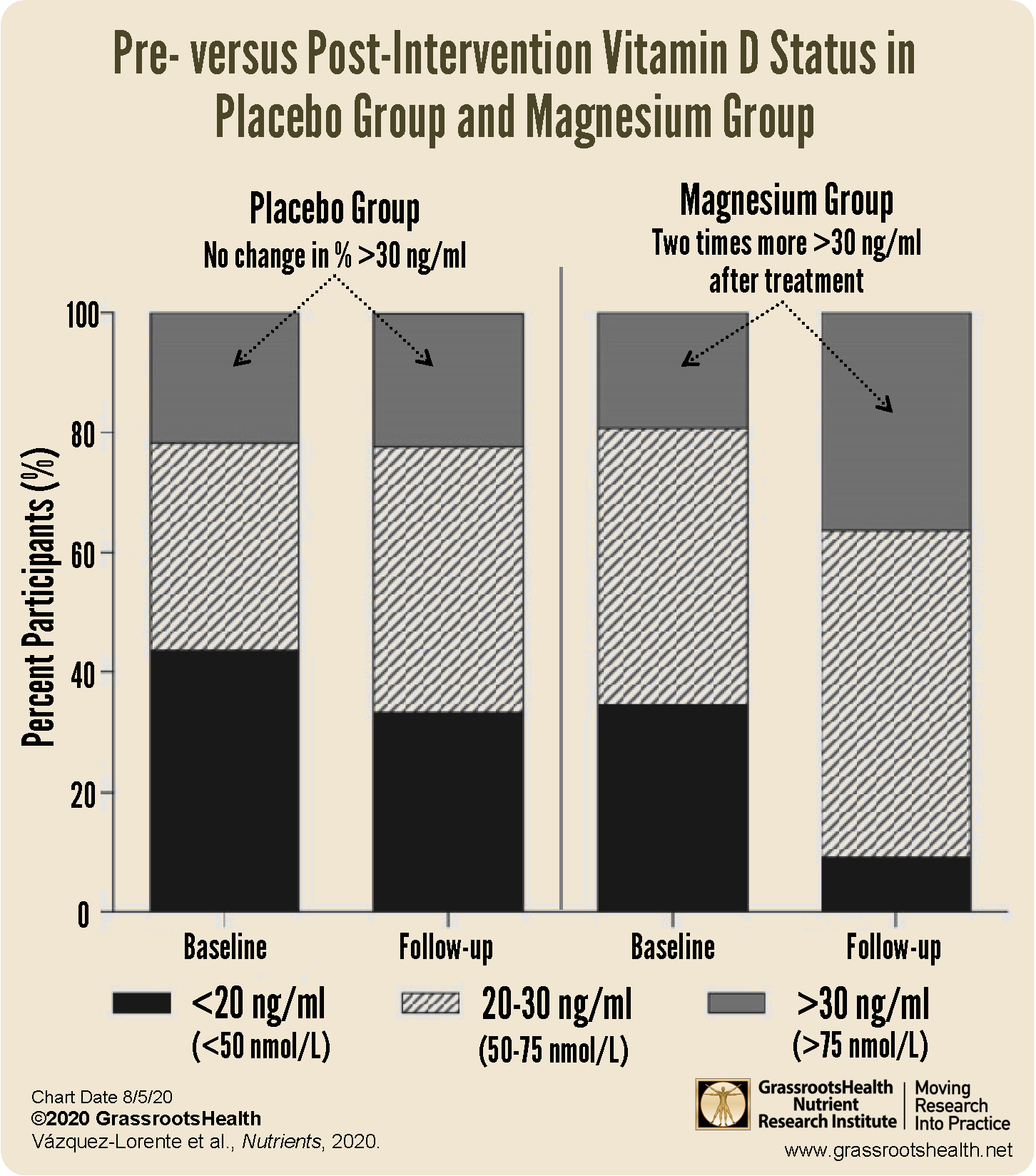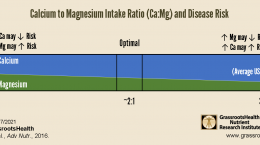Published on August 7, 2020
By now it should be clear to our followers that each nutrient does not work alone; instead, nutrients function in collaboration with other nutrients in a co-nutrient relationship. If one co-nutrient is limited, either missing or not plentiful enough, then the functions they are meant to carry out together may also be limited. Some examples include how different nutrients work together for bone health, how they are relied upon for certain enzymes to function, and more specifically, how some nutrients can influence the status and utilization of other nutrients.
Magnesium Supplementation and Status Affects Vitamin D
 Previous posts have discussed the role of magnesium as a vitamin D co-factor, showing an improved vitamin D dose response among those also supplementing with magnesium. The body needs magnesium for vitamin D metabolism; without it, the amount of vitamin D that can be metabolized and used by your body is limited and may result in a lack of conversion of vitamin D into its other active forms.
Previous posts have discussed the role of magnesium as a vitamin D co-factor, showing an improved vitamin D dose response among those also supplementing with magnesium. The body needs magnesium for vitamin D metabolism; without it, the amount of vitamin D that can be metabolized and used by your body is limited and may result in a lack of conversion of vitamin D into its other active forms.
A recent study by Vázquez-Lorente et al. looked specifically at postmenopausal women to see if magnesium supplementation alone had an effect on vitamin D status. They included 52 women between the ages of 44 and 76 years in Granada, Spain and randomized them into one of two groups: the Magnesium Group received 500 mg/day of magnesium for eight weeks, while the Placebo Group received a placebo. Nutrient intake was tracked along with vitamin D levels. Note that over 40% of all women included in the study received less than two-thirds of the recommended intake of magnesium (320 mg/day) at the start of the study.
The chart above illustrates the distribution of vitamin D levels among the women in each group at the beginning of the study and at the end. Approximately 80% of all women included had vitamin D levels below 30 ng/ml at the start. By the end of the 8-week study, vitamin D levels increased significantly among the women in the Magnesium Group compared to the Placebo Group (p < 0.05), with a significant correlation between overall magnesium intake and resulting vitamin D level (p=0.03). After intervention, the percent of women below 30 ng/ml remained at 80% in the Placebo Group, but was reduced to only 60% in the Magnesium Group.
Your Vitamin D Level Matters! Test yours today
Ensure your vitamin D level, and the level of other important nutrients such as magnesium, are within the recommended ranges for health. Doing so will also help support a healthy immune system! Test today to find out.
Are You Getting Enough Vitamin D to Help Yourself?
We’re in a time of great crisis that could be greatly affected by making sure you and everyone you know has a serum level of at least 40 ng/ml. Help us help you.
Do you know what your vitamin D level is? Be sure to test today to find out, and take steps to keep it within a target of 40-60 ng/ml or 100-150 nmol/L! Give your immune system the nutrients it needs to support a healthy you and protect yourself from unnecessary diseases.
GrassrootsHealth Nutrient Research Institute is preparing to do a Community RCT with the use of our myData-myAnswers nutrient health system that over 15,000 people are already using for their health. We will demonstrate how one can use the Nutrient Research Model established by Dr. Robert Heaney to establish the effect of vitamin D serum levels of at least 40 ng/ml (100 nmol/L) on risk reduction with different ethnicities in the population. Please let us know if you’re interested in helping sponsor this project.
CLICK HERE for updates and new information about the project.
Through GrassrootsHealth Nutrient Research Institute, you can also test your essential elements magnesium, copper, zinc and selenium, toxins such as lead, mercury and cadmium, as well as your omega-3 levels, inflammation levels and thyroid stimulating hormone (TSH) level. Find out your levels today! Log on to the test selection page (click the link below) to get your tests and see for yourself if your levels can be improved.
Make sure you track your results before and after, about every 6 months!
Click Here to Access the Test Page
How can I track my nutrient intake and levels over time?
To help you track your supplement use and nutrient levels, GrassrootsHealth has created the Personal Health Nutrient Decision System called
For each specific supplement, you can track what days you take it, how much, and many other details. This will help you know your true supplemental intake and what patterns of use work for you to reach and maintain optimum nutrient levels. Check it out today!









